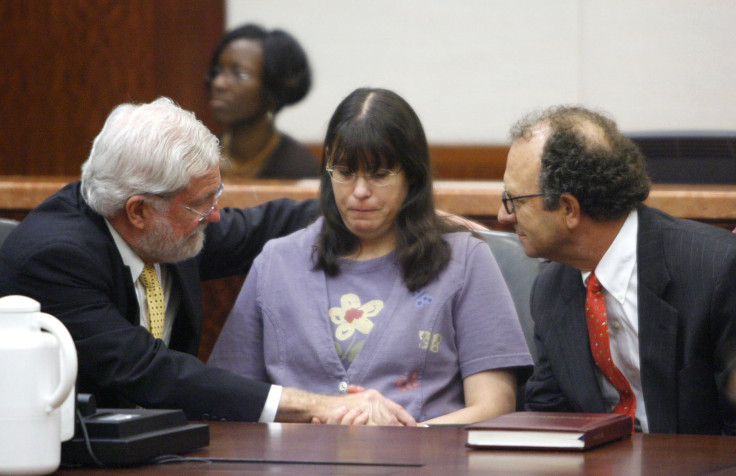Arizona Mother Drowns Her Own Twin Boys: Why Do Parents Kill Their Children?

News an Arizona mother admitted she drowned her twin 2-year-old sons in a bathtub Sunday before trying to drown another child produced shock and disgust in many, but the issue of parents killing their children is not new. In March, a woman was charged with killing her 20-month-old son in a Manhattan bathroom and in 2007, a Texas jury found Andrea Yates was mentally insane when she drowned her five children in a bathtub. In April, a Utah woman was sentenced to life in prison after she pleaded guilty to killing six of her newborn babies.
The children in these types of cases are almost always younger. Roughly 75 percent are less than 5 years of age, a USA Today study of more than three decades of homicide data indicated. While news accounts of mothers killing their children make more headlines, fathers are actually more likely to kill their children -- six of every 10 children killed by their parents were killed by their fathers, the study found, while 40 percent of children killed by their mothers were less than a year old.
In the United States, about 500 instances of a parent killing one or more offspring happen every year, a fairly consistent pattern in the past 50 years, Phillip Resnick, a psychiatry professor at Case Western Reserve University in Cleveland said. The U.S. rate of children being killed by their parents is higher than in other countries, which Resnick attributes in part to other countries having better social welfare networks.
Arizona mom drowns her twin 2-year-old boys in bathtub, police say http://t.co/nm2CvlIbQP pic.twitter.com/wGgGF031bc
— NBC Nightly News (@NBCNightlyNews) August 31, 2015The most common reason for a child to die at the hand of a parent is accidental, and results from a parent beating a child.
“A parent beats a child, throws them against the wall, breaks their bones,” Resnick said. “It’s not intended to kill, it’s an overzealous application of discipline, but it results in death.”
Resnick, who has been studying the psychology of parents killing their children for 50 years, said there are numerous reasons parents kill their children. The reasons for a premeditated killing of a child could range from simply wanting to be rid of the child to parents having psychological issues.
In some cases, parents kill their children because they don’t want them around, such as when a teenager has an unexpected pregnancy, Resnick said. A child's death at the hands of a parent may also be a result of a mother’s postpartum depression. In other cases, the killing of one’s children stems from the parent having deep psychological issues, such as hearing voices or believing the child is better off dead.
“This could be someone having the delusion that a child is suffering a fate worse than death, such as being possessed by a demon or fear of being taken into white slavery,” Resnick said.
Kirk Heilbrun, a psychology professor at Drexel University in Philadelphia who studies mental health and violence risk assessment, said only a small number of cases involve severely mentally ill parents. Reasons behind the killing of a child could be the parent has a serious drug or alcohol problem, the parent is unemployed, the parent doesn’t have much money or the parent is involved romantically with someone who isn’t interested in having a child.
Though more infrequent, some instances of parents killing children come as a form of spousal revenge. This could involve a father killing a mother’s favorite child as a way to get back at her, Resnick said.
Neighbor: "It wrecks the heart." This mom, Mireya Alejandra Lopez, intentionally drowned twin boys. More 10pm #12News pic.twitter.com/ZbdLNNNAkF
— JOE DANA (@JoeDanaReports) August 31, 2015© Copyright IBTimes 2024. All rights reserved.





















